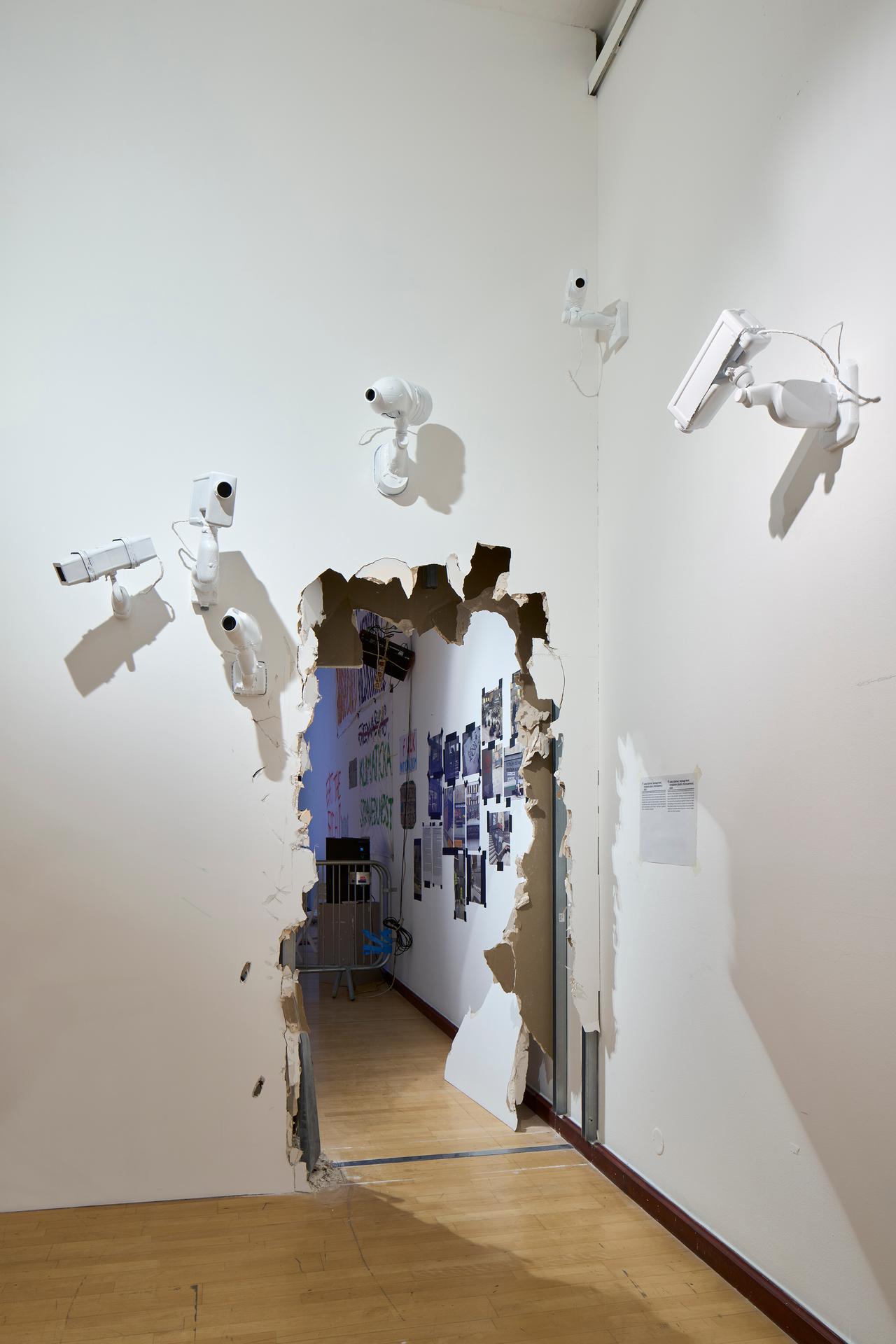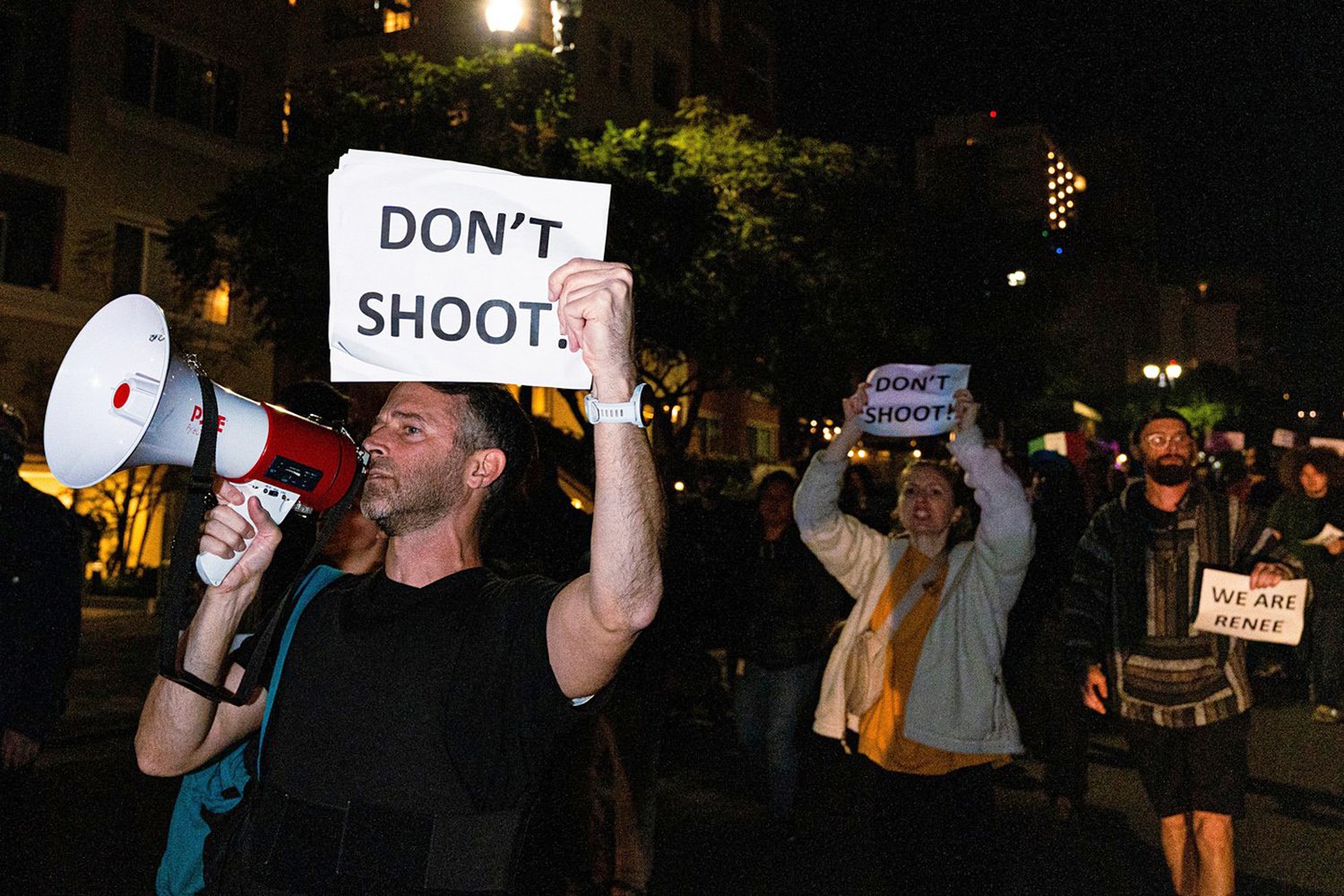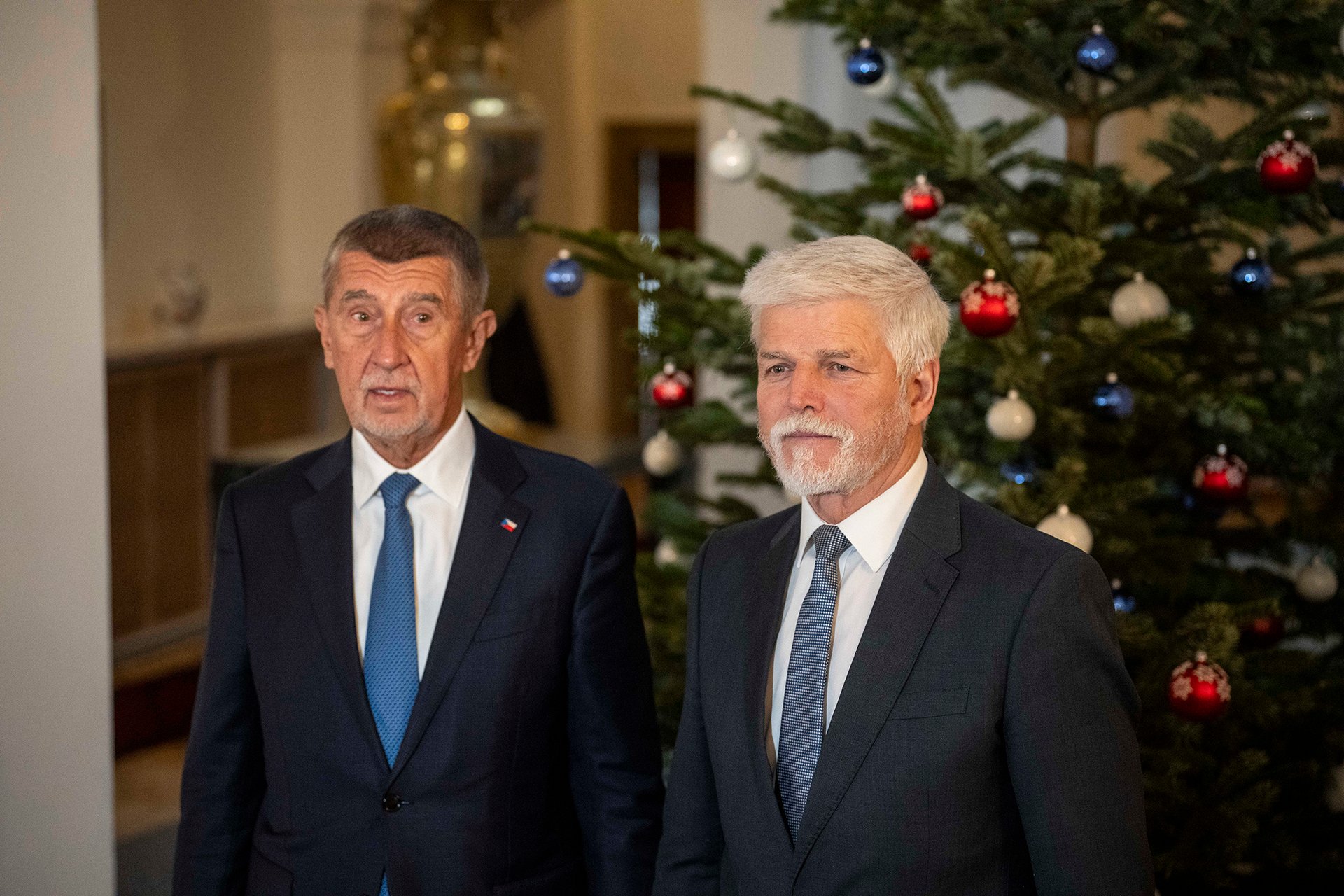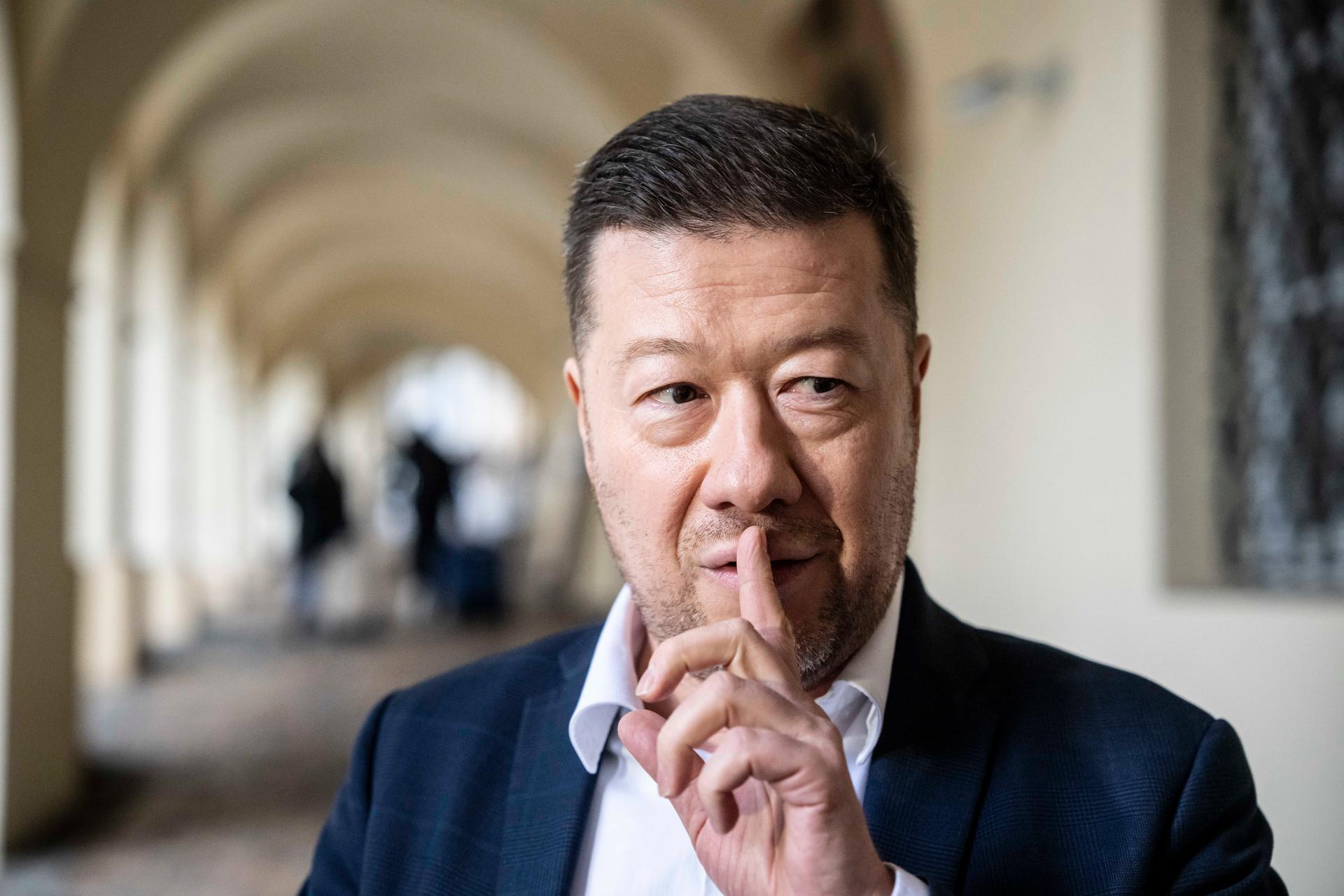Here comes a major educational reform
Over thirty days ago, all of us became participants of and actors in the largest educational reform since the times of Maria Theresa. Its objective sounds great: to reshape schools from outdated castles of drill, boredom and parroted knowledge into places where teachers develop pupils’ personalities and teach them how to find their bearings in modern world.

Over thirty days ago, all of us became participants of and actors in the largest educational reform since the times of Maria Theresa. Its objective sounds great: to reshape schools from outdated castles of drill, boredom and parroted knowledge into places where teachers develop pupils’ personalities and teach them how to find their bearings in modern world. This revolutionary change is welcome both by experts and the opposition but the public, parents and often even the teachers themselves lack awareness of it although their suggestions and zeal are of a key importance for the success of the undertaking.
A basic school in the middle of Zachar, a housing estate in Kroměříž, welcomes its pupils and visitors with gaily coloured drawings on its walls and a small snack bar selling sweets and the most important school aids. If you go further, you will find more graffiti. Pictures on walls line the whole school; colourful little figures smile at you from the floor. It is morning, and although classes have already started, children’s twitter reverberates through the corridor. A classroom on the first floor is wide open. Pupils of 4.B form are lying on a bench in the corridor; others are lounging about or lying flat on the floor. A few of them are also sitting in the classroom. They have sheets of paper in front of themselves. Some of them are deep in thought, others chat, drink water from their bottles, laugh and more or less ignore the visitors. “We are just writing a test in maths, Czech and elementaries,” explains the grinning Klára sitting on the floor in a band of other “young ladies”. “We do not get marks, we can check our notebooks, encyclopaedia and spend the whole morning over it. It is greater fun than before. There is less stuff and, mainly, we find learning amusing.”
Parents waiting in front of school for their offsprings have confirmed that children really enjoy the Zachar lessons. “Teachers motivate them in order to increase their enthusiasm for learning, they approach them in a better way than our teachers used to,” says Jaroslava Ondrušová, a mother sitting in front of the school on a bench. It is obvious that my son, although dyslectic, does not feel disgust for school. He can take his time over things and they are trying to help him.” Another mother joins in the discussion. “My son is also satisfied but I am not really thrilled about it,” she says. “I do not believe that learning should be just a game. They should be stricter as they used to be. I’d rather put him in another school but this is the closest one.”
Evidently, this is not the prevailing opinion: while schools mostly face problems with a lack of first-formers, Zachar has opened three classes. The school at Oskol, another municipal housing estate, has hardly managed to fill one first form. At their entrance gate, you are welcomed by a bust of Johannes Amos Comenius, the “teacher of nations”, and formative quotations of Kant, Tolstoj and Rousseau. In a corridor on the first floor, a red canvas predominates bearing an inscription in capital letters made of white polystyrene: “School should offer as much knowledge as possible but it should also make pupils pay attention, acquire accuracy and independence”. A display case with texts on various members of the Přemysl dynasty and with the highlighted date of 2 December 1805 – the battle of Austerlitz - only confirms the inscription on red background. Rattled children gaze at visitors and retreat to a toilet. Older boys submissively line up to be photographed and with a shy: ”We like it here”, quickly disappear in their classroom. The deputy headmaster refuses to speak to the visitors as swiftly as the boys. “I do not know anything, I will call the headmaster and ask him whether I can speak to you,” she says and disappears in an office. She has evidently been permitted to speak to us and finally consents to the interview on the condition that she will invite a colleague to assist her.
Thanks to Petra Buzková
Both schools reflect Czech reality: Zachar - until recently a “mere” experiment, Oskol - an example of the “normal” and usual practice. Since this September, their role has changed. Following the new Education Act, teaching methods used at Zachar have become a standard and an example for the others. Experts and more enlightened teachers consider it a success crowning a long road.
Ministerial experts and various well-informed reformers kept pointing out that it was necessary to abandon the established system of curricula, cramming of useless precepts and dates without sufficient context. Under Zeman’s government, their suggestions of changes were in the end formulated in the famous White Reform Book. Eduard Zeman, the then Minister of Education, referred to the White Book when preparing a new Education Act which should have replaced the law of 1984. Unfortunately, the Minister’s bill was refused twice by the Parliament. The problem was that the White Book requested - within the frame of general changes - also the abolition of eight-year grammar schools claiming that they introduced a far too early and therefore harmful classification of children into the “cleverer” and the “average” groups. The Members of Parliament took it for Zeman’s efforts to hamper the gifted part of Czech population in their “flight of imagination” and the whole reform became politically non-viable. Petra Buzková learned her lesson from the failure of her predecessor and did not try to abolish the selection of “the gifted” in her proposal, which helped. The law, based in other aspects on the principles enforced already by Zeman and prepared even under Buzková by the same experts as before, has been smoothly passed by the Parliament this year and has come into effect in September.
The most significant change it requires is introducing the Framework Educational Programme for basic schools. This “Framework” does not replace the current curricula but specifies a new purpose in education. At schools “friendly and outgoing atmosphere” shall prevail helping to develop six key competencies. Although it is a tongue-twisting expression, the “competencies” are crucial for the change of our system and everything devolves from them. Instead of cramming precepts and facts without context, schools should now concentrate on providing competencies. From now on, the Czech School Inspection will not check whether pupils in the fourth grade can recite the multiplication table but whether they are able to cooperate in a group, respect the convictions and beliefs of the others, utilise information technologies, defend their views, reason, think critically and assess the consequences of their acts. These are competencies – skills, abilities and attitudes - required for ordinary lives (expressed learnedly: civil, working, communicative, social and personal competencies, competencies for learning and resolving problems).
The new Framework includes other subjects than those we were used to: e.g. mathematics has become “Mathematics and its application”, physics, chemistry, natural science and geography have merged into one subject called “Man and nature”. Teachers should also train children in other new areas, e.g. “Thinking in European and global contexts” or “Personality development and social training”. Although these are not independent subjects, teachers should consider these spheres when training children in other subjects.
How and in which subjects will the teachers strive to achieve that their pupils acquire the coveted competencies will depend exclusively on the respective school. There are over 3300 primary schools in the Czech Republic and the new law requires each of them to prepare its own educational programme where the school itself will specify how it will lead its pupils to competencies, what activities and methods it will use to achieve that and how it will evaluate the meeting of objectives. Schools now avail of unusual freedom in adjusting training to their pupils’ needs. They can train them at their discretion without being forced to follow curricula laid down by the state.
See you on Saturday
While in most of Czech schools work on their own transformation is still to come, sixteen of them have already made the first step. Within the ministerial pilot project testing the reform, several schools have started preparing their own educational programmes in advance. The above-mentioned Zachar school in Kroměříž id among them. This institution has enjoyed more favourable baseline conditions than most of the others mainly because it has launched changes of its own free will and already before that it selected for teaching modern primary school curricula among three programmes from which primary schools could select at that time. Already in 1990s, under the then regiment educational system, more liberal teaching was allowed and teachers could skip parts of the subject matter and merge subjects. School at the Zachar housing estate was established only 15 years ago and the then headmaster hired for her team younger and enthusiastic teachers who were well disposed towards the alternative style of teaching. Despite their previous experience, the revolutionary transition to the Framework was not simple for the team either. “It was rather difficult to find out what the Framework actually requires. It included lots of information, terms which we had never heard before,” Marcela Honzírková says. “All of a sudden we were asked to try and achieve that the children really understood text and did not only perform well-swotted clause analyses. They should for example be able to compare articles in various newspapers. It was immediately clear to everyone that we could not teach those issues as we used to and that lecturing in front of the blackboard would not do.”
All teachers at Zachar first studied the Framework and then they organised meetings after school and on Saturdays where they were discussing how to change the traditional system. “First of all we defined what our school-leavers should be like. When doing that, we considered the neighbourhood of our school: it is in the middle of a housing estate with children from various social groups. We therefore decided to target at the development of personality,” says Petra Fečková, the headmaster. “We adjusted the teaching plan to support our decision and strengthened for example the subject “Man and society” so that each child leaving our school could find its place in the society, was familiar with various learning methods and could make its own choices. In order to avoid stressing our pupils we tried to allow each of them working at his or her own pace.”
Compliant with the new law, parents form a very important part of school. Together with municipal representatives, they form the school board and supervise over the activities of the institution. “At the very beginning, I invited all of them to school and explained to them the change that we were trying to introduce,” says the headmaster Fečková. “The parents did not oppose to the changes because they had been informed about them beforehand and we had discussed everything with them.” Currently, the parents of pupils at Zachar avail of a direct control over the methods applied to teaching their offsprings - they can join the class at any time and watch the course of a lesson. If they do not like it, they can complain through their representatives on the school board. Each year, there is also an open day where parents can try and step into their children’s shoes and not only experience the methods used but also taste the food cooked by the school kitchen for their children. Today, parents can watch their children walking along the corridor and painting star maps on paper affixed to its walls, making chemical experiments, trying to mint coins. Children thus learn for example about the reign of Rudolph II. The teachers have decided not to torture their pupils by making them learn the whole genealogical tree of the Přemysl dynasty but offer them only a few most interesting personalities from the Czech history. These are then discussed in detail and the pupils, together with their teacher, in the end sum up e.g. the description of the king’s court. They thus learn not only who Rudolph II was but also how things were going during his reign, what people were wearing and eating. “They get a first-hand experience and remember the information much better than if we only lectured on the subject matter - and that’s the point,” says the school headmaster.
Nobody has ever trained teachers for this kind of work and they themselves did not experience it as children. “When attending basic school and university training, I got used to teaching in a classical way – standing in front of the blackboard and lecturing on things while children take notes,” remembers Marcela Honzírková, a teacher. “The Zachar headmaster has often recommended to me various seminars organised e.g. by Friends of Engaged Learning. My school paid for them and let me attend them in working hours. All of a sudden, I could see that it could be done in a different way and I gradually started changing my teaching style.” Mrs. Honzírková now teaches “Man and health” and she never only stands about the board in her classes. “We often sit down on the carpet in a circle and children tell about their yesterday’s experiences, what made them glad, sad, angry,” the teacher says. Then they, for example, tell how they feel. In the end we jointly list general situations evoking unpleasant and pleasant feelings. Children often do not know how to call their emotions. They should also learn that it is no good suppressing them, that they do not have to be ashamed of crying, that the others also have their feelings and that listening to them is important.” For Mrs. Honzírková it is demanding: teaching aids for this approach are scarce and she must search for information in her free time and by herself. “I do not complain,” she says. “I like doing it because I can see that it is purposeful and the children enjoy it.”
They may shut it down
Such step into the unknown territory is now ahead of those with whom the current “cramming” style is just fine, e.g. the inmates of the above-mentioned Oskol primary school. “We hoped that they would not pass the reform,” says Eva Vejmelková, a primary school teacher. “We have enough work, why should we be thrilled to take on extra duties?” The deputy headmaster, who asked her colleague to join in the interview, nods in agreement. “We ourselves do not know much about it. We do not know where to search for information, what and how should actually be changed,” Jarmila Frecerová, a mathematics teacher, says. “We are certainly not going to change the style of teaching radically and I am 100 % sure that we are not going to reduce the content of our curricula.” The management of Oskol has not yet told anything about the imposed change to teachers or parents. “We will wait and see how things develop. They may cancel the reform after the elections,” Mrs Vejmelková hopes. Nevertheless, schools cannot rely on that. The shadow Minister of Education, Walter Bartoš (ODS) welcomes the changes and, should he replace Petra Buzková after the elections, he is certainly not going to take a backward step. “The Framework is positive. I would allow schools even more space for the preparation of their own training programmes,” says Walter Bartoš, the Member of Parliament.
Women from Oskol management claim that they lack information on the reform but there is plenty of it on the Internet. On special web pages (www.vuppraha.cz), you can easily find not only the Framework but also a manual suggesting how to prepare your own educational programme, including practical examples of schools that have already prepared it. The approach of the City of Kroměříž was just exemplary: It suggested to all its schools that they might ask for assistance Karel Bárta, an old hand at the reform and the headmaster of a basic school in Turnov where he has already introduced and used his educational programme. Oskol was the only school to refuse the offer saying that its teachers would have to sacrifice a Sunday to the training. But even the Oskol staff will not dodge a supporting seminar. The point is that representatives of each basic school must, within three months, pass a training paid by the European Union.
A week’s seminar on how to prepare its own training programme is also ahead of the school in Kvasnice – a small Moravian village. Also there, half-hearted scepticism concerning the reform still prevails. “We do not know how to do it and, actually, I am not quite sure what is expected of us”, says the deputy headmaster Zdena Gašpárková. There is information on the Internet but it is not fully clear to us. And if we are to prepare a training programme, we will have to do it in a team and communication will be difficult to achieve. We are not used to it, we meet each other only exceptionally.” The headmaster, who has entered the staff room equipped with the handbook “The headmaster and school educational programme”, does not perceive it in such a tragic way. Now the most important thing is that we understand correctly the Framework and what it requires of us”, says Ladislav Škrabal, the headmaster. We hope that the offered discussion with Mr. Bárta will help us and that we will be able to ask him to explain what we do not understand, for example how to achieve the competencies, how to group subjects, what to stop teaching etc.”
What worries the Kvasice headmaster the most is the reaction of its staff. “There are people used to teaching in the old way and they showed mistrust when hearing the first information on the reform,” says the deputy headmaster Mrs. Gašpárková. “But we cannot sack anyone because we would not be able to find any replacement for them.” Causal talk with Kvasice teachers shows that the worries of their head are not unjustified. “I strongly oppose it, it will only bring about chaos,” says Anna Tomaníková, a primary school teacher. “Until now, it has been quite clear what pupils must manage each year and we have known exactly what we should teach. Now noone can make head or tail of it.” And her colleague Helena Vysloužilová, a maths teacher, agrees: “I have read the Framework and, in my opinion, we have already been doing everything it says for a long time. They have just used words of foreign origin to name the obvious and paid through their nose for it.” So how do you develop, for example, communication competencies of your pupils? “How? In a normal way. When I ask someone to come for an oral examination in front of the class and then extract from him or her what they are expected to have learned. What else is it but communication?” says Mrs. Vysloužil. “And besides, I cannot see why children should have such freedom. We will further follow the old curricula.”
It requires time
It is too early to start criticising the first months after the launch of reform but the above interviews illustrate a potential approach which might, in the experts’ opinion, hamper changes. “I am afraid that about 70 % of schools will approach it only formally and just amend old curricula”, says Karel Fleischmann, education department director at the Kroměříž municipal office. “I hope that competition will help and effect the changes and that, gradually, the call for schools with a good approach to pupils will increase. But what about villages where there is no competition and not even the bottom-up pressure from parents who are used to fear and authority?”
Jan Tupý, one of the authors of the Framework and a deputy director of the Pedagogical Research Institute, is not really afraid of the impacts of potential formal approach. “Yes, it is possible that lots of schools will copy their programmes from others but the time will tell that those who have readily accepted the change will be ahead of the others - and it will show,” says the deputy director Tupý. “Of course, there will be people fiercely resisting the change – I guess it will be about one fifth of current staff. Those are mainly older teachers. In their case, we will simply have to wait until they are replaced by younger generations and retire.” Deputy director Tupý has suggested that the reform needs time. “Schools avail of two years when they can prepare their educational programme. While doing that, they are sure to find out that their old teaching methods are once and for all outdated,” says the deputy stressing that, based on foreign experience, first results will be available “only in 5–10 years. We must be patient.”
Experts admit that the reproach of critics saying that most of the parents and some teachers are quite unaware that a reform is going on is rather substantiated. “We lack adequate awareness-raising, which is a pity,” says Ondřej Hausenblas from the Pedagogical Faculty of Charles University. “If pressure exerted by the ministry combined with the bottom-up pressure from the parents, schools would be left no space for dodging and would have to start improving.” For example, when a similar reform was being prepared in Great Britain, its Prime Minister, together with the Minister of Education, appeared on TV in the principal broadcasting time and explained what was wrong about the previous system, why it had to be changed and what steps were under preparation. “Our minister refuses the criticism as unjustified”, conveyed Ondřej Gabriel from Perta Buzková’s press department her message while she was abroad. “There were two seminars in the Chamber of Deputies with the participation of the Minister, there were two press conferences, she expressed her opinion on programmes in interviews, published articles in professional press,” lists Mr. Gabriel. He says that Petra Buzková has not considered addressing the public as they did in Great Britain or Denmark. “That is absurd, the ministry lacks money for that and broadcasting corporations would not let us appear on TV. But we will try and consult this possibility with the management of the Czech Television.” In this case, awareness raising is of crucial importance. “If the reform does not gain a massive support, both financial and through the media, it will have large negative consequences,” means Hausenblas. “Teachers will be fed up and dissatisfied and children will again be at the receiving end.”
Experience your world
We can still rely on a group including a hundred people with special training who should pass their experience to the representatives of each basic school during the next three months. The group members including teachers, headmasters and staff of pedagogical faculties have volunteered not only to take up training on the preparation of the educational programme but also to spread their enthusiasm and explain the requirements of the reform to the others. During the summer vacations, there was a training of trainers including experts in alternative teaching, headmasters of schools already under reform and a representative of the Pedagogical Research Institute. The last meeting of the team was held the last week in September in Velké Bílovice.
In a large hotel at the periphery of a small Moravian town, men and women of various age groups are sitting in several separate rooms. “I can feel that I am in a tight corner. The time is scarce. I am the only person in our school who has read the Framework because the others are not interested. I need advice on how not to scare the other teachers, how to motivate them,” says a bearded man with a badge saying “Jenda”, sitting at a desk with other five people. We found it helpful to attach a note to each subject in the class register saying which competency we develop in each pupil. It helped teachers because when teaching, they were reminded of the objective their lesson should reach and they concentrated on it,” adds someone else. The trainer is meanwhile drawing a chart on paper illustrating how various subjects can be scheduled in a week and what competencies they can develop. “Children find it much more amusing when we let them participate in their education, when they can e.g. themselves suggest an activity,” says the trainer. “They remember 80 % of what they experience but only about 20 % of what they read.”
Meanwhile in another room, trainers tell each other how they will explain the coordinators at schools work on the educational programme. “They will speak with them about the necessity of change explaining that pouring knowledge in children has already lost its sense and that they must think hard about their work,” says Vlaďka Neužilová from basic school Pozořice, one of the participants of the seminar. “I will organise a visit of a school where changes are already being introduced so that teachers can see that it can be done differently“, says Ladislav Majer, deputy headmaster of a basic school in Brno. Ladislav Mazal, Vice-dean of Olomouc University, who is also present, believes that the launched reform is the only way how to change the domestic unsatisfactory education. “Thanks to the Internet, children often know more than their teachers, the previous style of teaching has thus lost its sense,” says Vice-dean Mazal. “I want students at our faculty to be well informed of the reform so that our university prepares high-quality teachers convinced that old teaching methods have already been overcome.”
Interview with Karel Tomek, former head of the Department for pre-school and basic education at the Ministry of Education
You are among the authors of our current educational reform. What is you main complaint about the current system?
It can be expressed in simple economic terms – its low efficiency. The world surrounding us has changed. Knowledge gets quickly outdated and new information keeps appearing. It is apparent that for pupils more general competencies are important – their ability to learn something new rather than to learn a specific thing and remember it for their whole lives. The pupils will have to learn new things and communicate with the others irrespective of whether they become scientists or shop assistants. Instead of developing those abilities, our school used to concentrate only on individual subjects. Czech public does not perceive that as a problem. It is only the industrialists who keep blaming us for the fact that employees are unable to learn new things in this country. Recently, a company has organised a tender in the Highlands region - 100 people have participated in the tender but none of them has been selected. They are not willing to learn, speak to each other, work in a team - they lack the required competencies.
What positive aspects, apart from introducing the Framework Educational Programme, does the new law offer?
It specifies that school must submit reports for 5th and 9th forms on the level of achieving educational objectives by its pupils and on their acquisition of the above key competencies. They cannot be marked and require verbal evaluation. The positive thing is that teachers will improve evaluation, increase the informative value of school reports and, what’s more, the pupils will get the opportunity of telling what they know. Teachers must learn how to lead each pupil to creating his or her own portfolio. The law requires that secondary school headmasters consider both these documents (the school-leaving evaluation and the pupil’s portfolio) during entrance procedures. If I were a secondary school headmaster and availed of such information, I would not require acceptance tests at all. The new law should lead to limiting the fitful stress of secondary-school entrance tests.
What important issues, in your view, are still missing in the law?
International PISA research has revealed that the Czech Republic is among countries with large differences between the weakest and the best pupils - and I believe that it is true. In this country, pupils face excessive selection not allowed abroad. If I had my way, the law would take care of it. Although the law has created conditions for harmonising special training with the mainstream, it has not abolished eight-year grammar schools.
How will the reform end up? What happens if most of Czech schools meet the requirements only formally?
You should not be so pessimistic. One third of schools has already delivered training in a desirable way. Then there are schools lacking systemic approach but availing of open-minded teachers. In other schools, there are open-minded managers who do not know how to handle the bunch of excentrics on their staff - but there is will to change. Then there are schools opposing the changes and unwilling to budge but time flies and we cannot wait till we have motivated and educated teachers.
What about schools which do not desire any change?
The preparation of their own programme offers background for discussions among teachers. They must start talking to each other; they have a joint task to address. They can also find out that they are unable to change and will leave. After the introduction of a similar reform in Finland, one third of teachers left schools.
The Framework among animals
A small school at Maškovice close to Domažlice is special for two reasons. Without being involved in the experiment, it has for a long time taught in a way desired by the ministerial experts. Nevertheless, each day it faces traumas brought in by their pupils from their previous schools.
From the windows of a gaily-painted farmhouse bearing the inscription “Adélka” children’s voices can be heard. Less than 30 children attend classes in two classrooms. Each class has its desk and a teacher. At one of the desks, three of the youngest are trying to write the word “mum”. When all of them succeed, they insert their papers into envelopes. “It will be a surprise. Do not tell anyone at home what you have learned to write today. We will send this paper to your mother as a letter,” says Vladislav Halík, the teacher and at the same time headmaster of this small school. There are animals living with children at the farmhouse where their school is situated. While the children are learning, a goat and sheep are grazing in a fold, kittens are frolicking with a dog in the yard. In the break, children run out to play in a sandpit in the yard. The older ones, nicknamed hormones due to their puberty, creep into a shed and play loud music while smaller children are feeding the animals. “We want them to have a positive relation to animals and the countryside so that they do not leave for cities,” says the headmaster who has come to the remote village from a well-known experimental school in Prague London Street. Most of the pupils commute to Mašovice from the surrounding towns. “Lots of them have come here from other schools because they got into trouble there. They were bullied by teachers and school-mates, or the school did not adjust its pace to them,” describes the headmaster the background of his pupils. When children with such experience get to us, at first they go on the rampage. They are loud, unable to help each other, they are selfish, sneaky, they refuse to get involved, they just wait how things turn out.” It takes several months for a child to relax, start behaving naturally – and gradually acquire competencies, although this is not how they call the results of teaching at Mašovice. “We consider it a success when parents tell us that their child does not vomit any more in the morning before going to school and can do without anti-depressives he or she was on because of fear of school,” the headmaster says. “The problem with older pupils who come to us from 7th grade is that they do not rid of their negative approach to school. Although they tolerate school, they dislike it and accept it as a necessary evil. I find it strange that none of the parents has yet filed a criminal information against teachers for what they have done to their children.”
You will find no child from the village among pupils. A woman hanging with her four-year-old son about the school explains why. “Never would I put my child in there. We expect children to spend 8 hours sitting at their desks, write their homework and be shipshape,“ says the mother. “But we often meet these children running about during their lessons and not learning. I dislike such a teaching style.” In Mašovice they are certainly not hard up for pupils, this year they had to refuse one “over the limit”. And the preparation of the Framework? There is only one problem in this respect at the farmhouse – finding time for doing it. In this case, they can just formulate what they do every day. “We want to achieve that the children are self-confident when leaving our school, that they know how to help the others, how to study and want to study,“ says the headmaster. “In this respect, the reform is not important for us but thanks to it other schools might realise that the world has changed and that they must change themselves and their approach.”
Pokud jste v článku našli chybu, napište nám prosím na [email protected].










